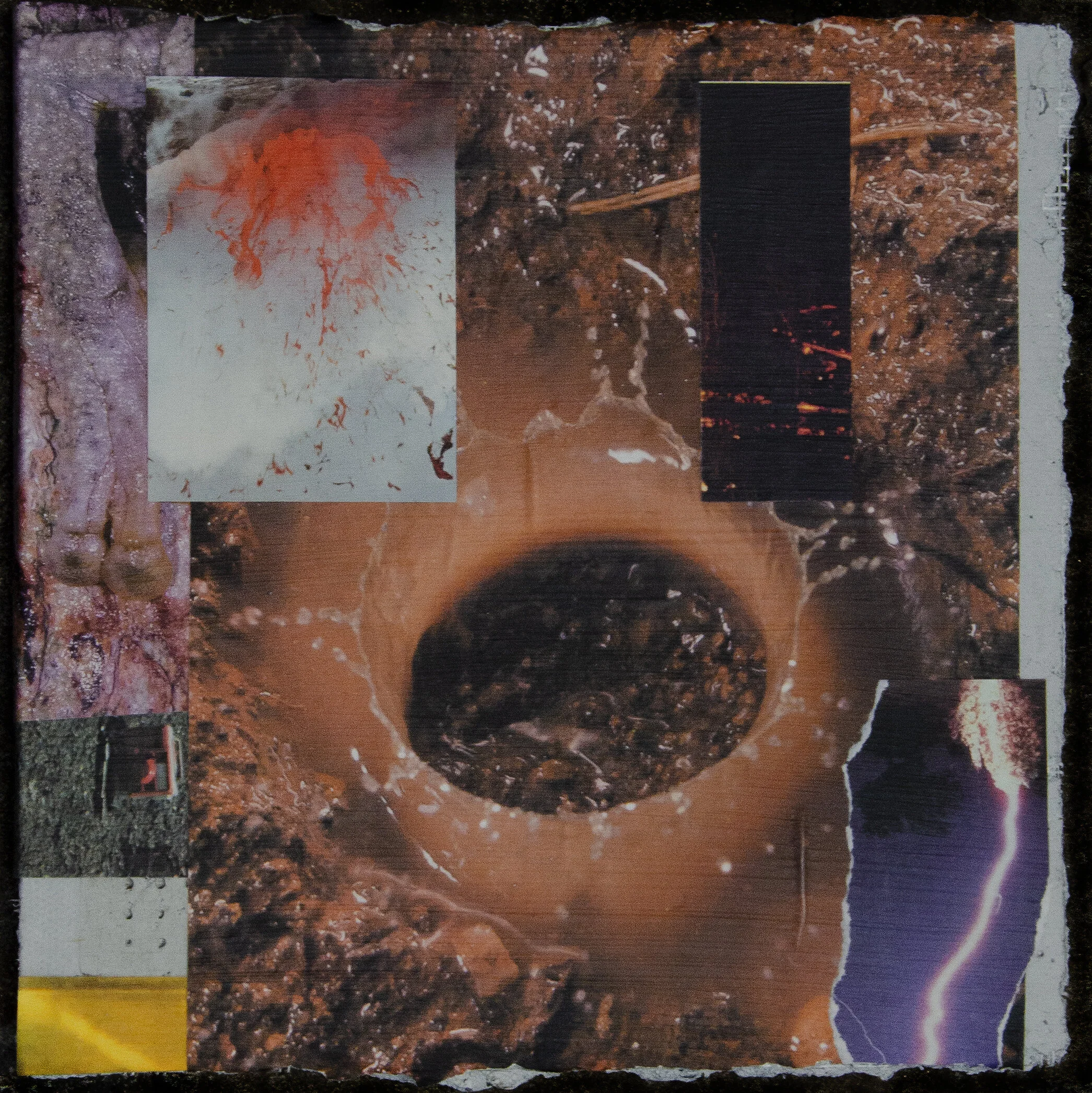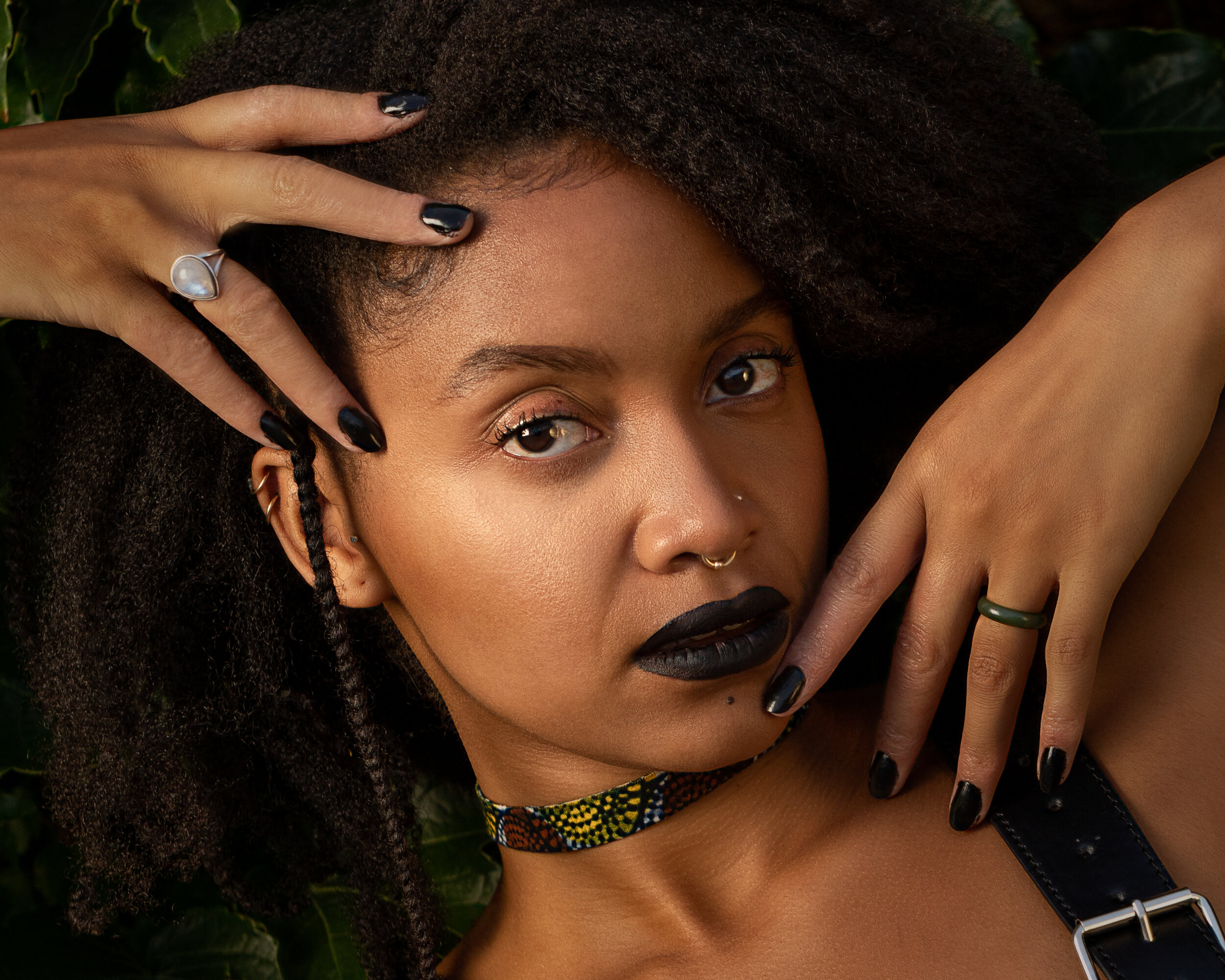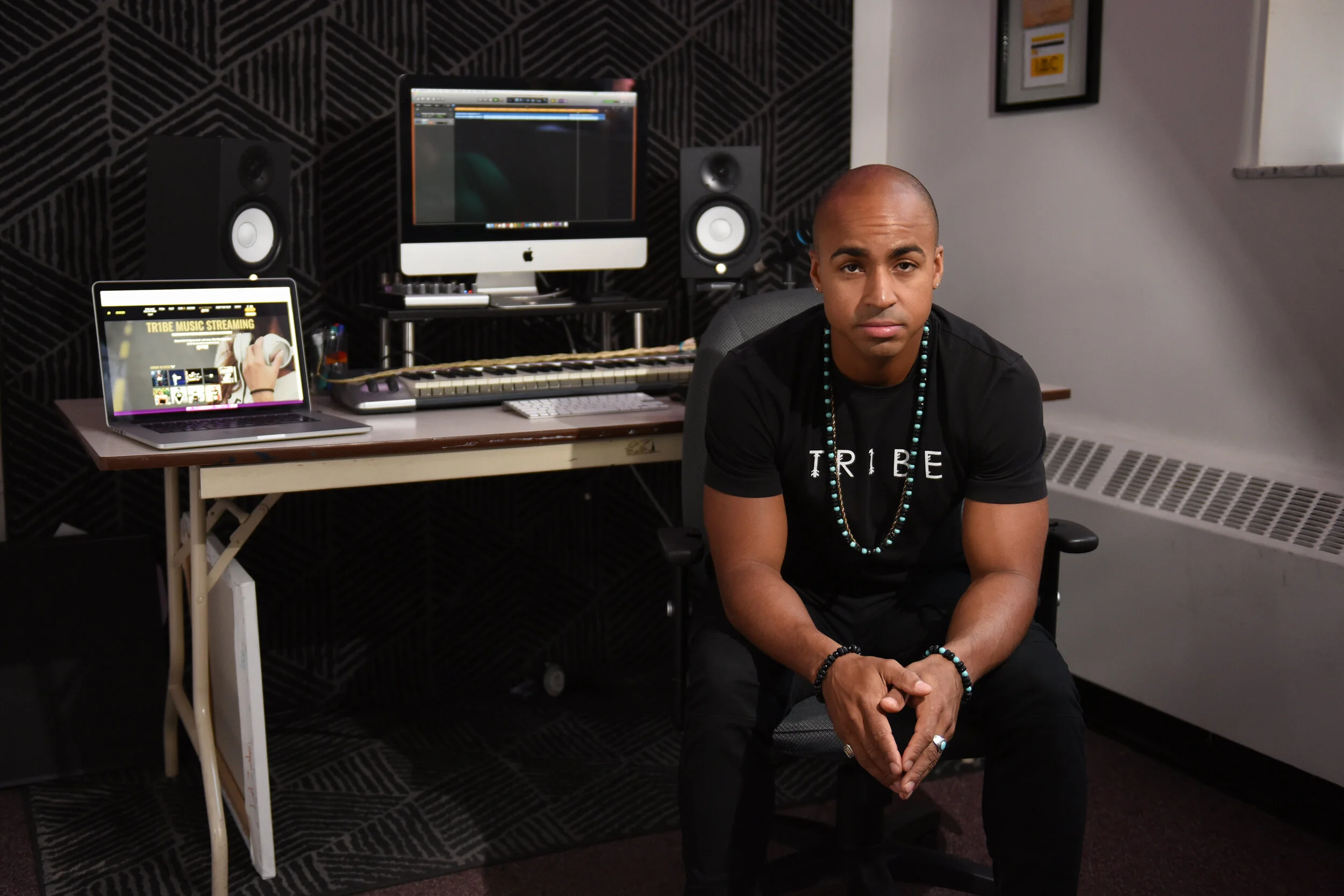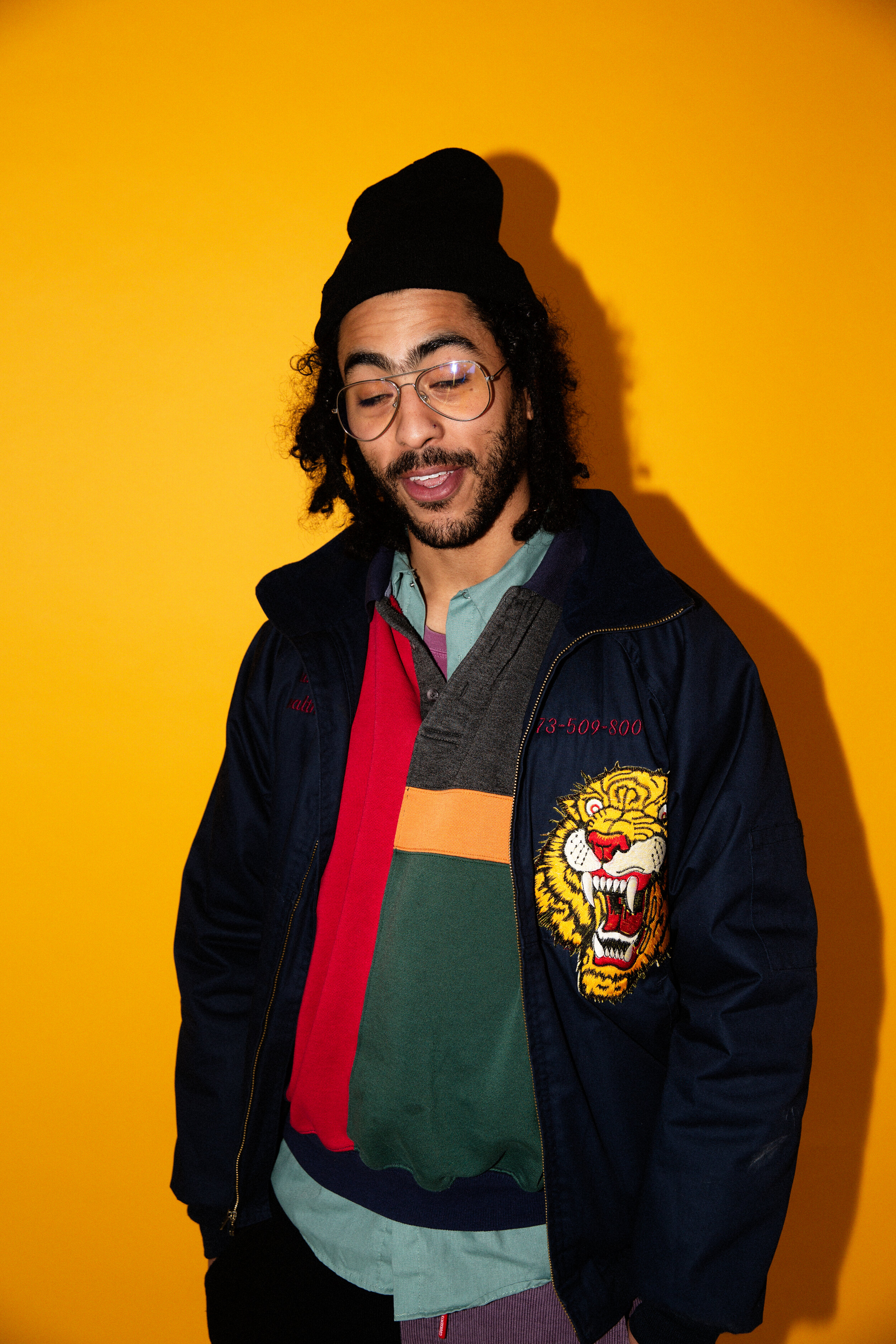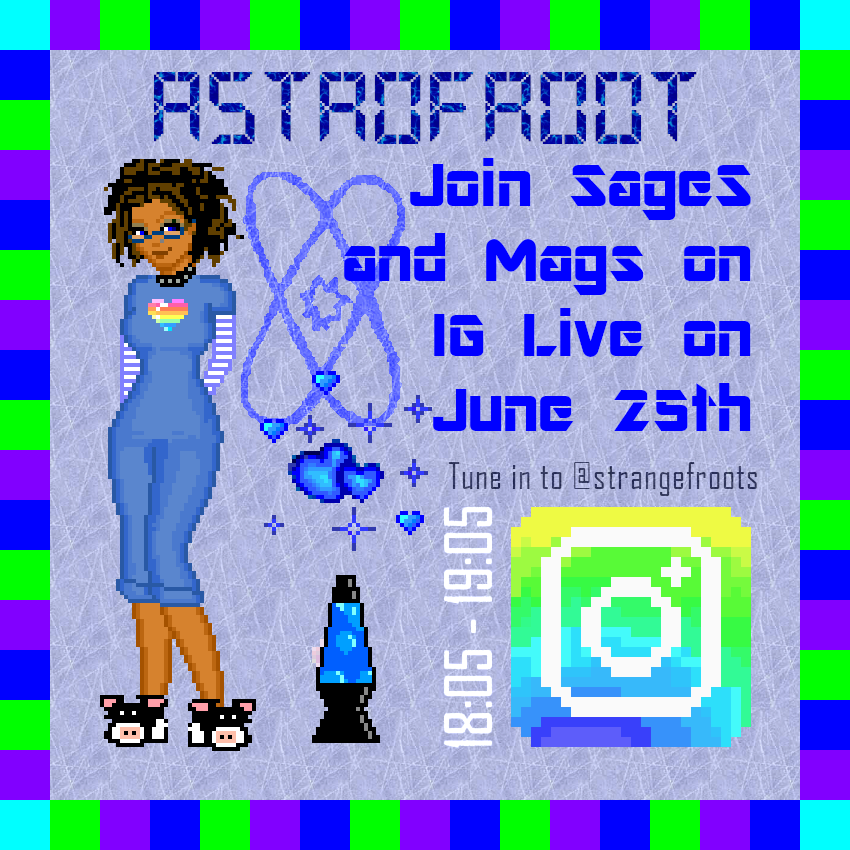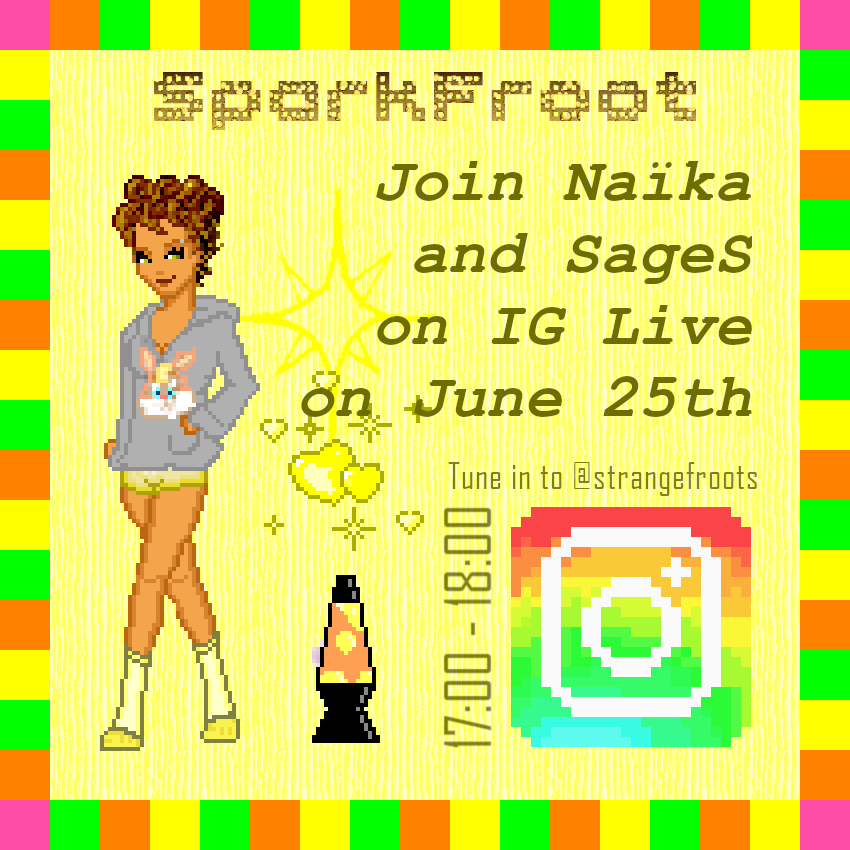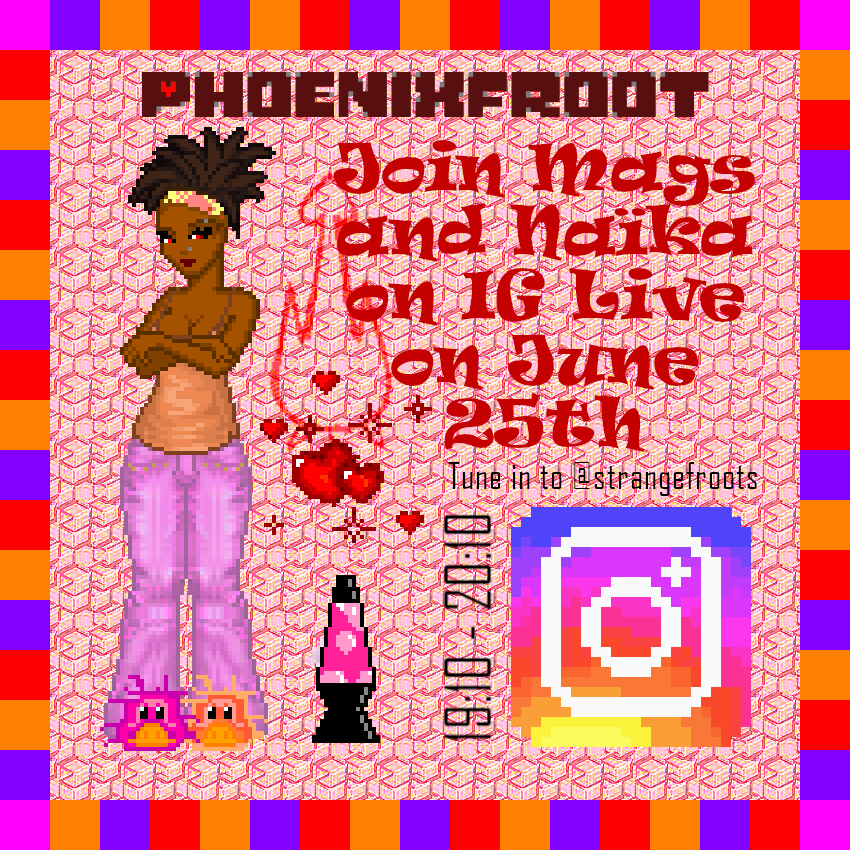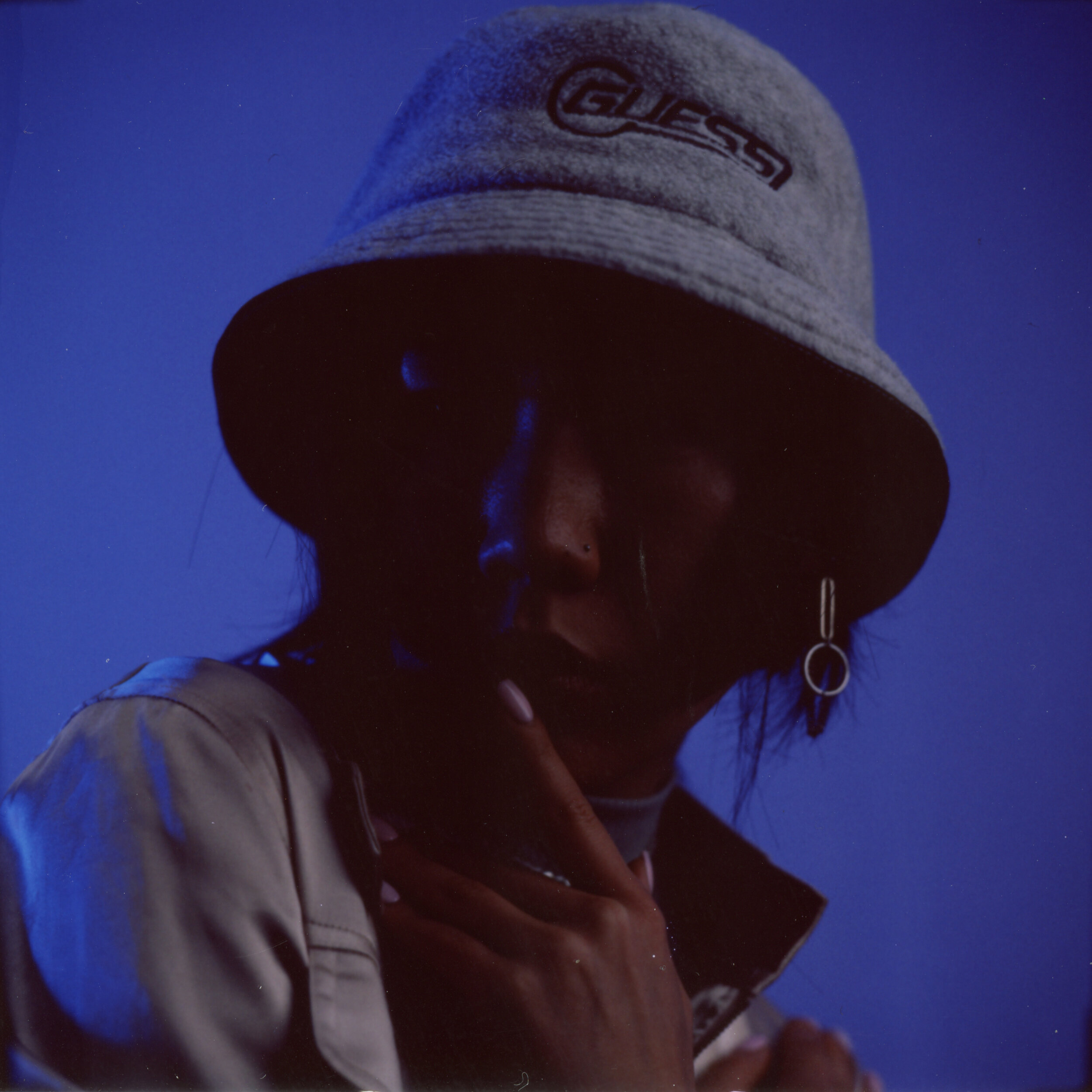Anime, Hip Hop, & Your Inner Child: Mags Releases AMV Remixes with Backxwash, JU!CE, & More
Photo cred: Mahel Pfaff
Who else wants to be a kid again, watching their favourite anime on a rainy day? In a time where nostalgic comfort is more valuable than ever, MTL-based multidisciplinary artist Mags of Strange Froots has created a new series of mixtape-inspired AMVs (anime music videos) set to last year's Green Apple: The RMX, a short EP made up of six remixes of the titular song.
With society all but collapsing, Mags maintained her creativity through many mediums; today, she’s sharing with us her mixtape-inspired AMVs, and spoke about childhood favorite animated shows with her friends and mixtape collaborators: JU!CE, Jassah (aka Youmna), RamehS.eS (aka Shem G), Little Cashew (aka Kajo), and Backxwash.
Mags (“Granny Smith” Rmx): I think we’ve all had a hard-ass year, to say the least. As I approach my 30s (*deep existential cringe*), with more and more of my friends declaring that they are, in fact, baby, I realize how important it is for us to nurture the inner child that may have been neglected decades ago. I’m really thankful for my chosen family, and all the people I’ve met in Montreal who’ve introduced me to some of my new favorite things, from Steven Universe to Azumanga Daioh. Sometimes it feels like we’re making up for lost time, or even lost youth.
Mags: Last year I put this remix project together with these talented producers, in honour of my band’s five year anniversary; objectively five years isn’t that long, it doesn’t even have its own name as a unit.
But looking back on old photos, videos, promotional posters from festivals and more, we can be aged or grow (yes there’s a difference) by so many different things in our lives. Sometimes it’s okay to honor that growth with a renewal of fond memories from the past, especially when it’s growth for the better.
What is your relation to the anime chosen to accompany your respective track?
JU!CE (“Calville Blanc” Rmx): Code Lyoko was a show I would always watch when I was younger. Either early Saturday mornings on Cartoon Network or reruns at certain hours. I was in love with the show and characters so much that it was one of the top shows I would watch. In terms of my style with my music, people say, "you always feel out-of-world or in another dimension," and knowing Code Lyoko is actually that, fits perfectly.
Youmna/Jassah (“Flower of Kent” Rmx): The anime Mags chose was new for the both of us, and it fit so perfectly. It's abstract, but there's clearly something deeper unfolding. The specific shots align so well with the story I created with the remix. It feels meant to be.
Ramehs.Es (“Pink Lady” Rmx): I watched Cybersix growing up, on Teletoon, when I was supposed to be in bed. It's the perfect animated reference to my already budding vigilante, dual identity lifestyle.
Kajo/Little Cashew (“Duchess of Oldenburg” Rmx): I grew up watching a channel called Spacetoon that aired Arabic dubs of anime. Case Closed was one of my favourites and the one I recall the most of. I think all the action and tactics was what caught my attention. I definitely used to go around pretending to use my watch to shoot sleeping needles at people (lol).
Backxwash (“Arkansas Black” Rmx): I like Hellsing. It is extremely edgy and very very goth. I also love the religious aesthetic towards it.
How would you describe the final AMV product?
Youmna/Jassah: I also really love how Mags inserted Strange Froots in the anime edit. Watching it felt like a trip in itself, which I aimed to do with the track, so it feels really good to have a visual to accompany it.
Ramehs.Es: The edit tells the story of childhood innocence and memories turning into something real dark, real fast, night and day, two coins, etc.
Kajo/Little Cashew: Honestly, it was hard to imagine a music video for "Duchess of Oldenburg" because it's very all over the place. But seeing the anime MV reminded me of how much I enjoyed watching anime as a kid, and watching them on Spacetoon more specifically. That channel was iconic. It makes me sad that the second I got western channels, I just ghosted anime and Arabic channels. But now that I finally found the real names of those anime (not the Arabic titles), I can look them up and reminisce. So I'm happy with how the MV turned out!
Do you have any old cartoons/anime that ground your inner child?
JU!CE: Shows that help me stay grounded to my inner child is kind of a tough take. I would say Courage the Cowardly Dog, Ed Edd n Eddy, Teen Titans, Foster's Home for Imaginary Friends, Sonic X and The Powerpuff Girls. By far, Cartoon Network was the only station I would watch, second to Nickelodeon, then Warner Bros TV. These are some shows I plan to rewatch at some point in my life. I miss the nostalgia.
Youmna/Jassah: The Jungle Book is a cartoon that grounds my inner child - I always related to Mowgli, and I loved being transported to the jungle itself.
Ramehs.Es: Cartoons with dark, spacey themes as well as proper character development. Classic Batman, Cowboy Bebop, even Static Shock went through way too much for someone his age. It was really telling stuff that taught me way more than any suburban Laval school could (haha).
Kajo/Little Cashew: I would say the ones that I loved the most growing up were Case Closed and Akachan to Boku. I remember casually seeing scenes from Remi the homeless girl [Remi, Nobody's Girl]. I will say though, the one that hit the most was Akachan to Boku, but it's just not the vibe for the track 'cause it's a very calm laid back anime, and I wanted action for the MV.
Those were my go-to as a kid. I think it's because they came out in 1996, one year before I was born, so they were airing when I was really young. I also remember that Captain Tsubasa J was a huge deal when I was young. I didn't to watch it religiously; I mostly just remember parts of the intro song (in Arabic.) Beyblade was also huge, I don't recall the show but I remember buying the Beyblades and attending a competition inside a gift store with a big ring and almost 50 guys stacked in a small room trying to watch.
When I grew a bit older, we got an orbit subscription with the western channels (Disney Channel, Cartoon Network, Tiji). I kind of forgot about anime and began watching cartoons like Recess, Pinky and the Brain, Brandy and Mr. Whiskers, Tic & Tac [Chip and Dale]. So those would be the shows that entertained me and kept me dreaming and distracted from real life as a child.
Backxwash: A lot of 90s-2000s anime is what I was into. Ninja Scroll, Saint Seiya, Sailor Moon of course, Ranma ½
Mags Instagram I SoundCloud
JU!CE Instagram I SoundCloud
Backxwash Instagram I BandCamp
Kajo/Little Cashew Instagram I SoundCloud
RamehS.eS Instagram I SoundCloud
Youmna/Jassah Instagram I SoundCloud













